Analyzing data Our Planet and Environment Worksheets
5 filtered results
-
From - To
Explore the "Analyzing Data: Our Planet and Environment Worksheets" designed to help young learners develop critical thinking and data interpretation skills. These interactive worksheets encourage students to analyze various environmental data and trends, fostering an appreciation for our world. Engaging activities may include sorting, categorizing, and graphing information related to ecosystems, weather patterns, and pollution. Perfect for early-grade classrooms, these resources not only reinforce science knowledge but also promote analytical reasoning. Enhance your curriculum with hands-on lessons that inspire curiosity about the environment while supporting essential math and literacy skills. Equip students to make informed decisions about their planet’s future!
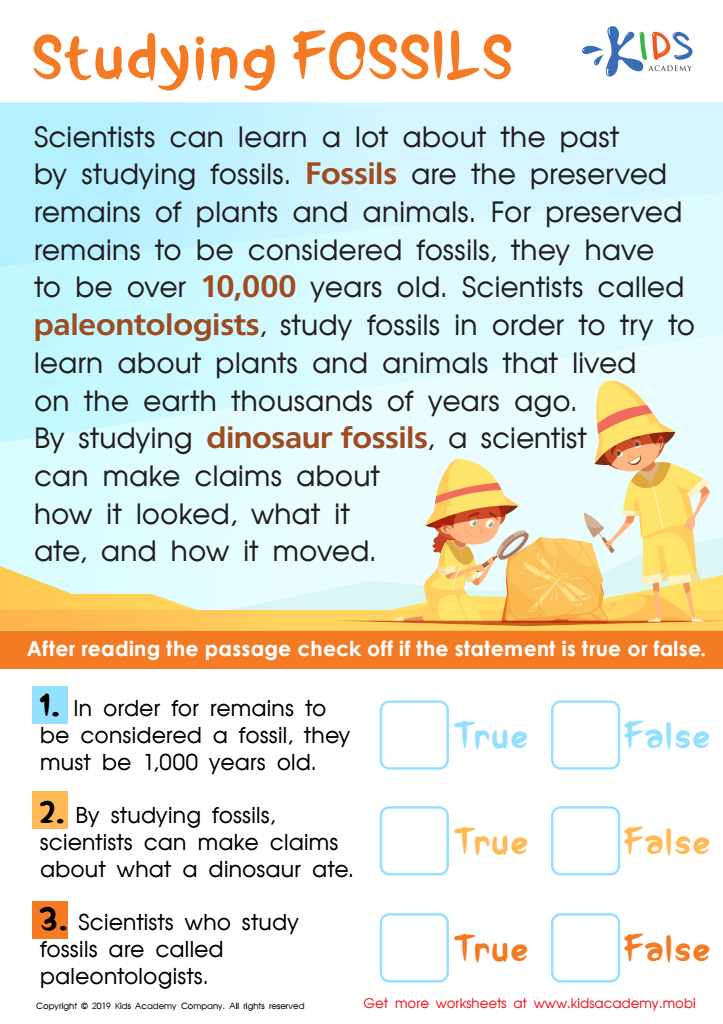

Studying Fossils Worksheet
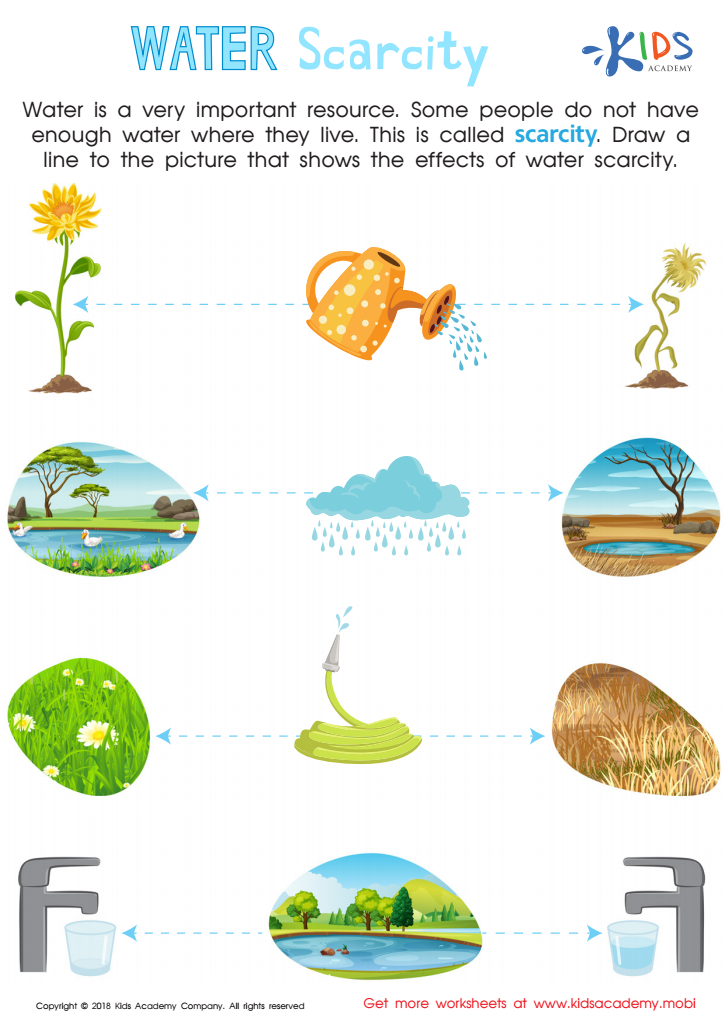

Water Scarcity Worksheet
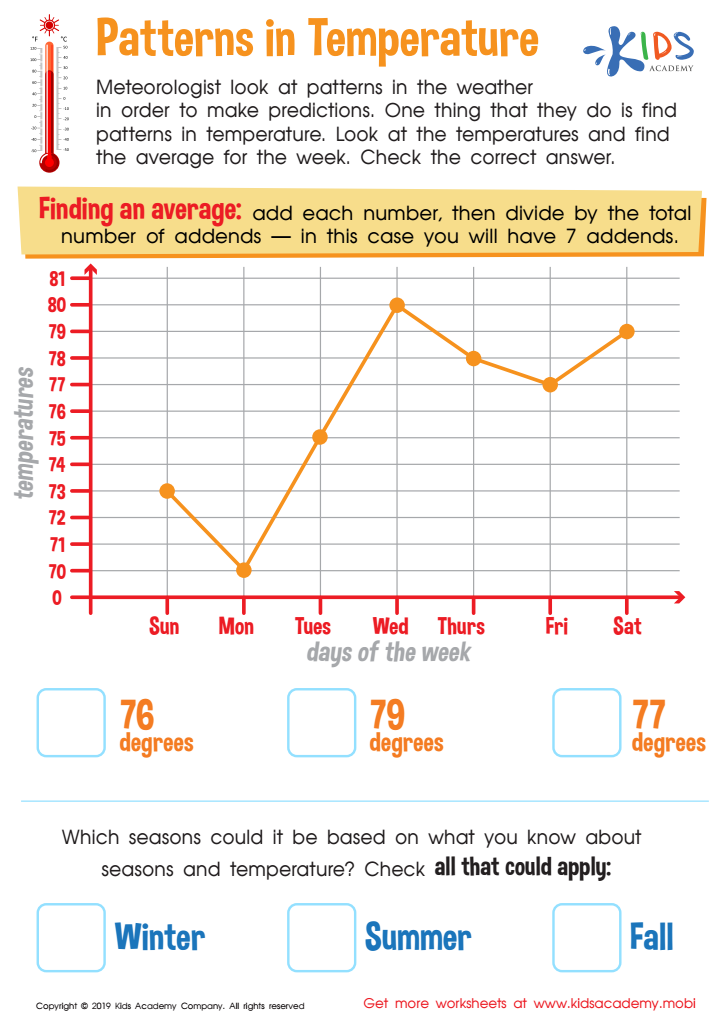

Patterns in Temperature Worksheet
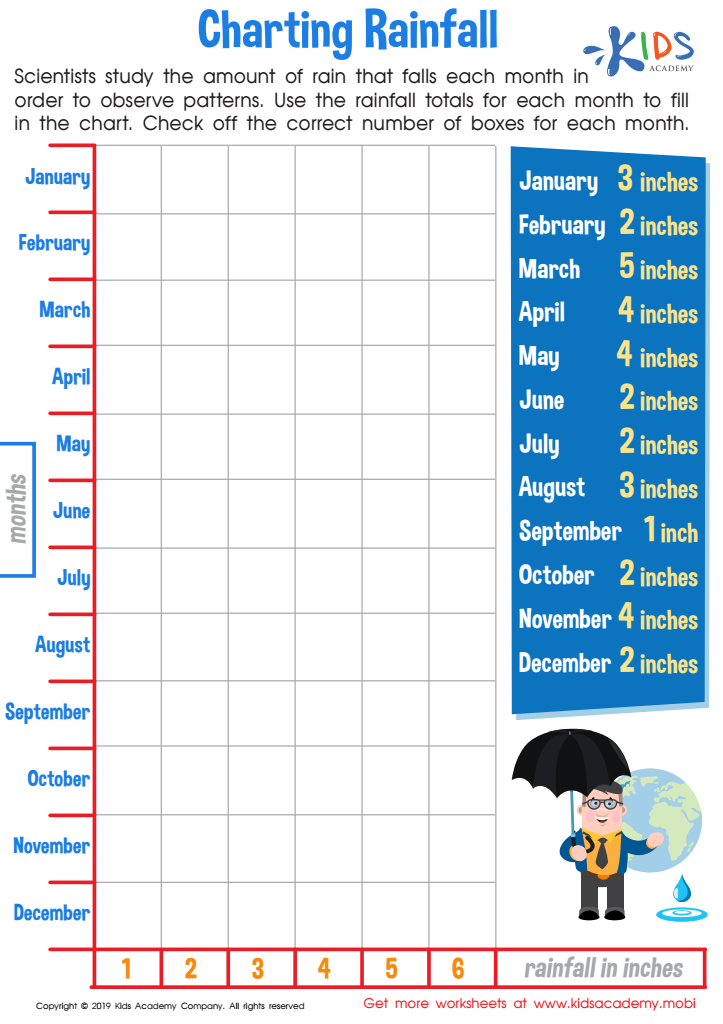

Charting Rainfall Worksheet
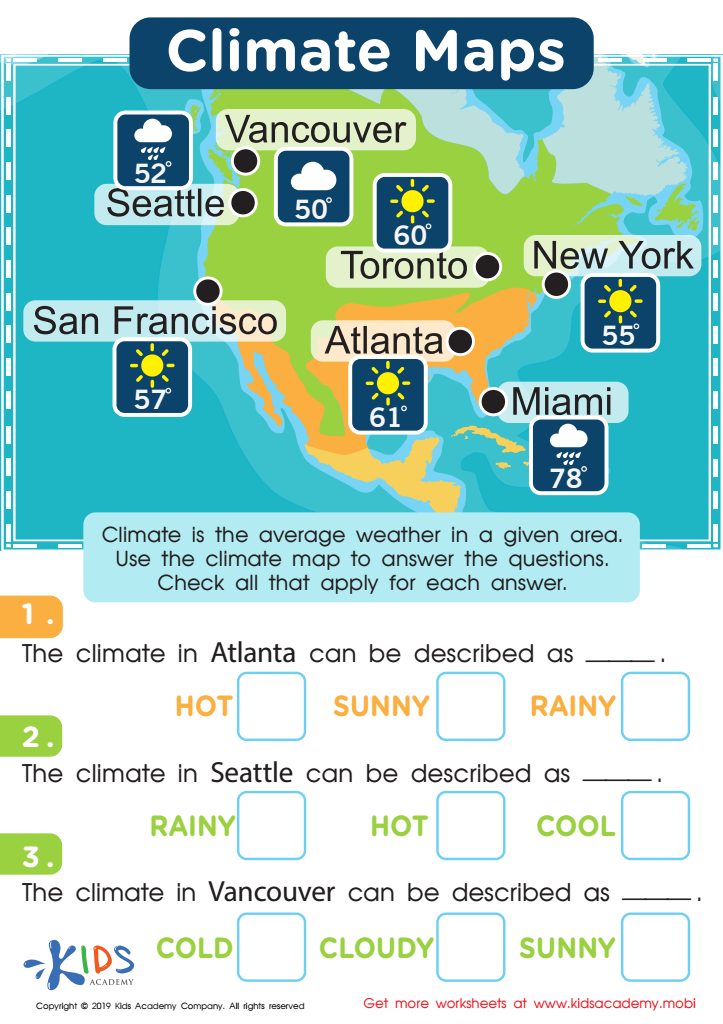

Climate Maps Worksheet
Analyzing data related to our planet and environment is crucial for parents and teachers because it fosters awareness and understanding of pressing ecological issues. By engaging students in data analysis, educators can help them appreciate the complexity of environmental challenges like climate change, pollution, and biodiversity loss. This understanding cultivates critical thinking skills, enabling young learners to draw conclusions and make informed decisions affecting their futures.
For parents, involvement in this analytical process reinforces the importance of environmental stewardship at home. Discussing data trends—such as rising temperatures or declining wildlife populations—encourages children to care about their environment and motivates them to adopt sustainable practices.
Additionally, learning to interpret data promotes scientific literacy, a vital skill in our data-driven world. It empowers students to become active, informed citizens who can engage in community discussions and advocate for environmental policies.
Finally, fostering a culture of curiosity and inquiry around data helps shape responsible leaders who prioritize the health of our planet. When parents and teachers work together to emphasize the importance of data in environmental discussions, they lay the foundation for a generation committed to sustainable living and impactful change.
 Assign to My Students
Assign to My Students



















